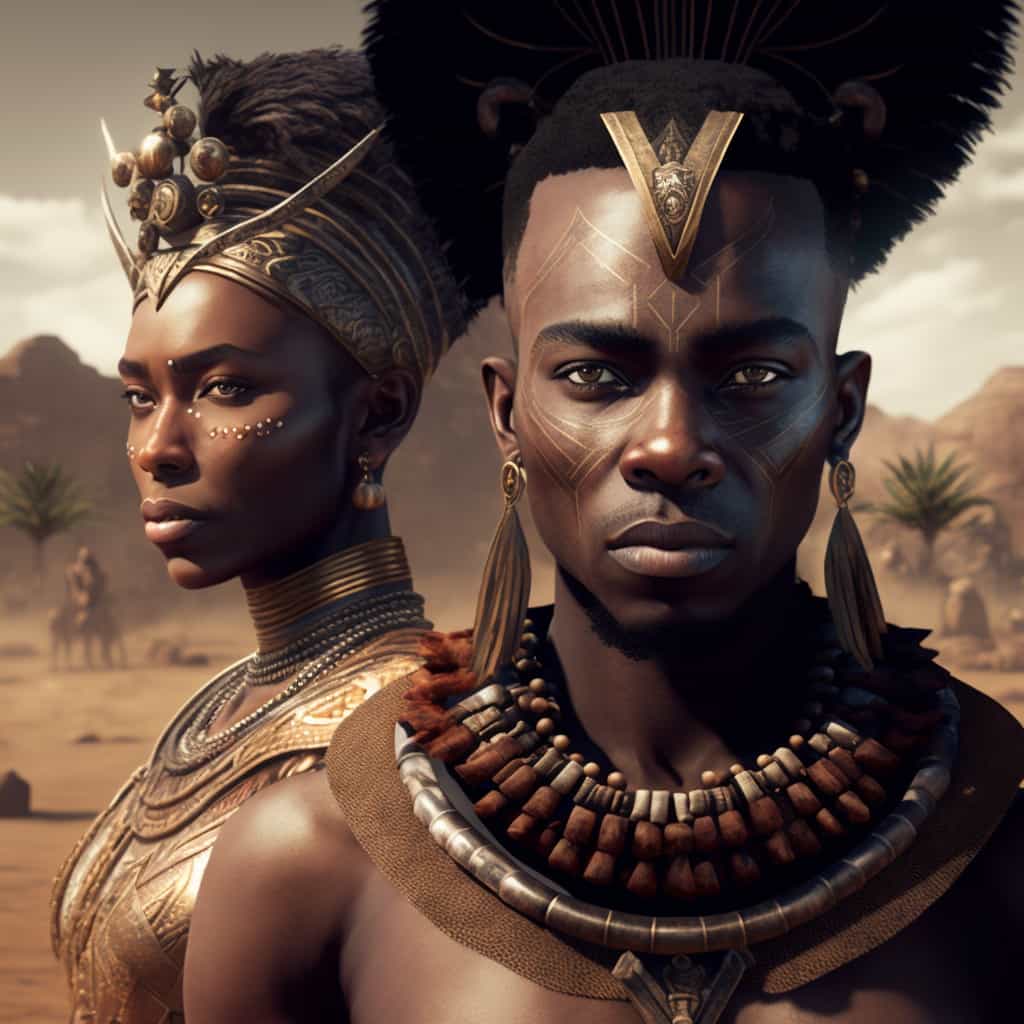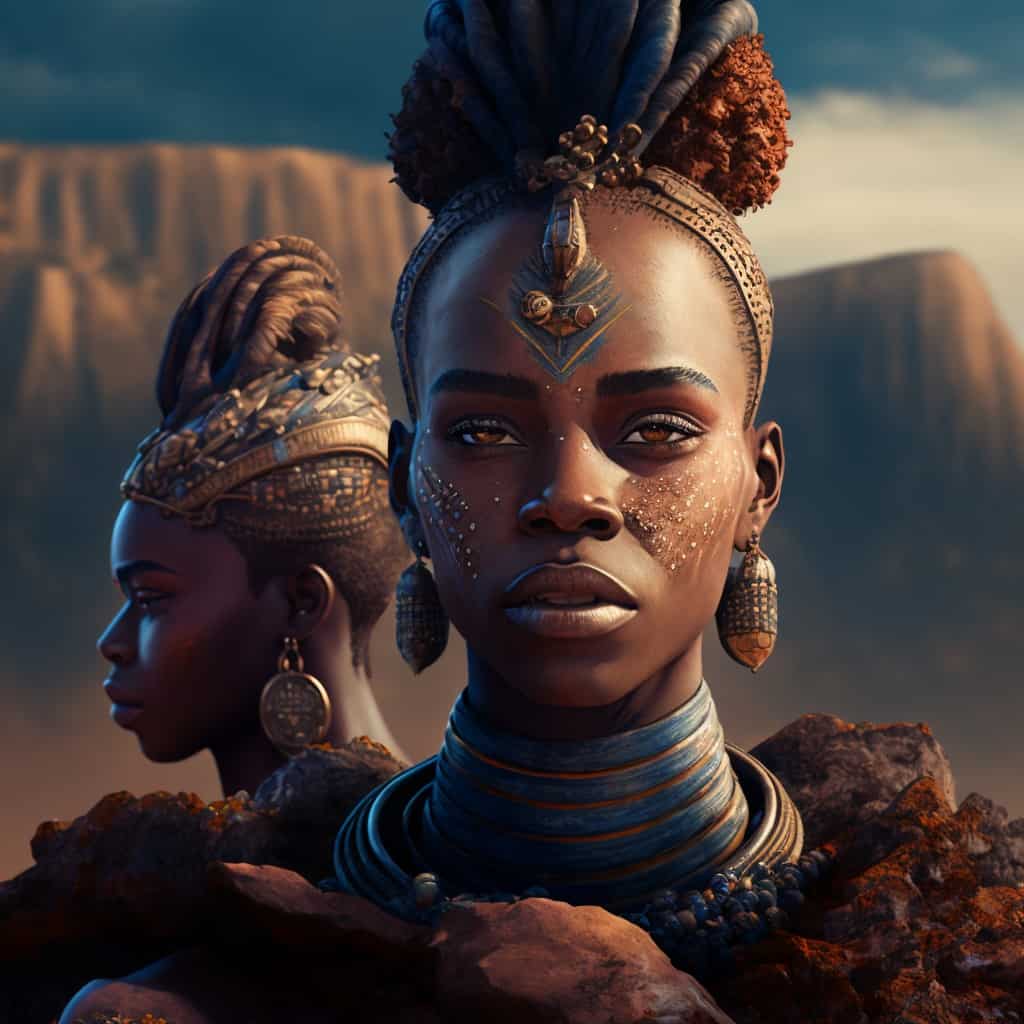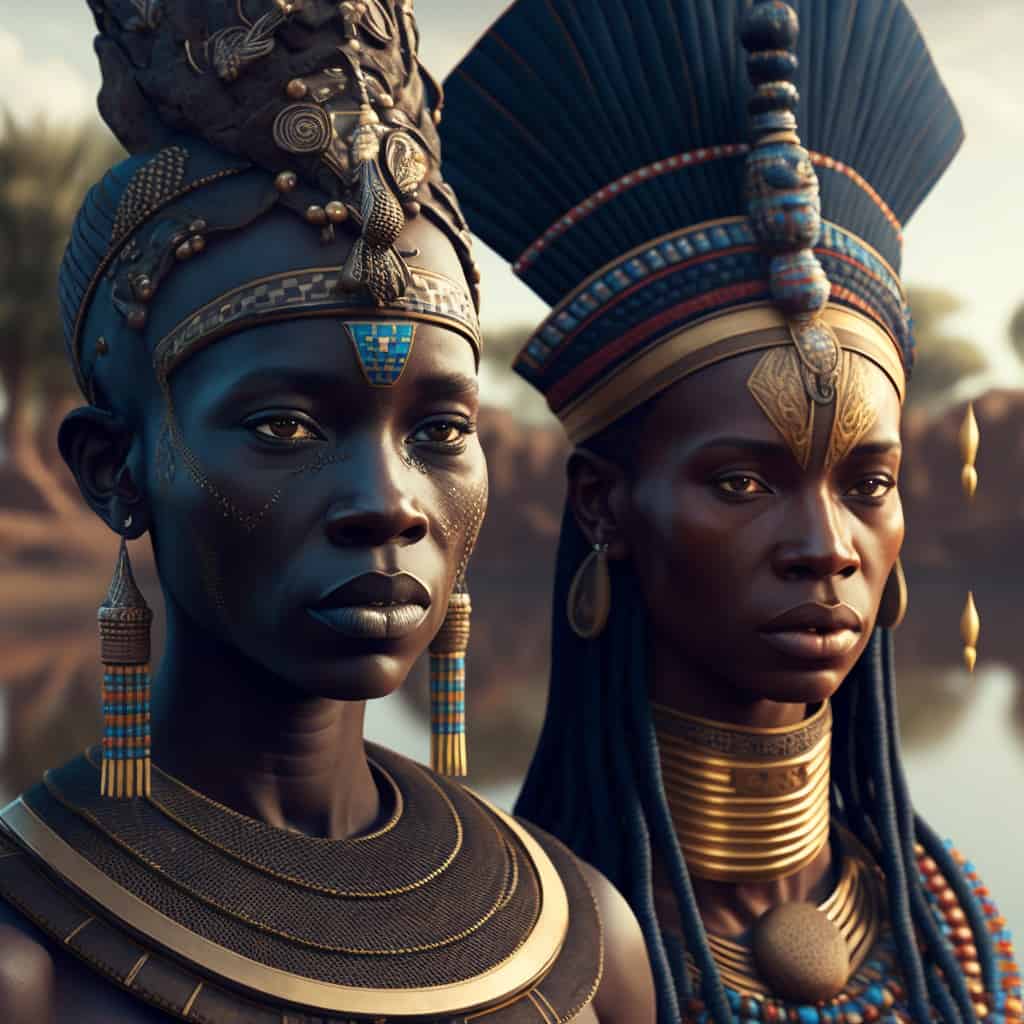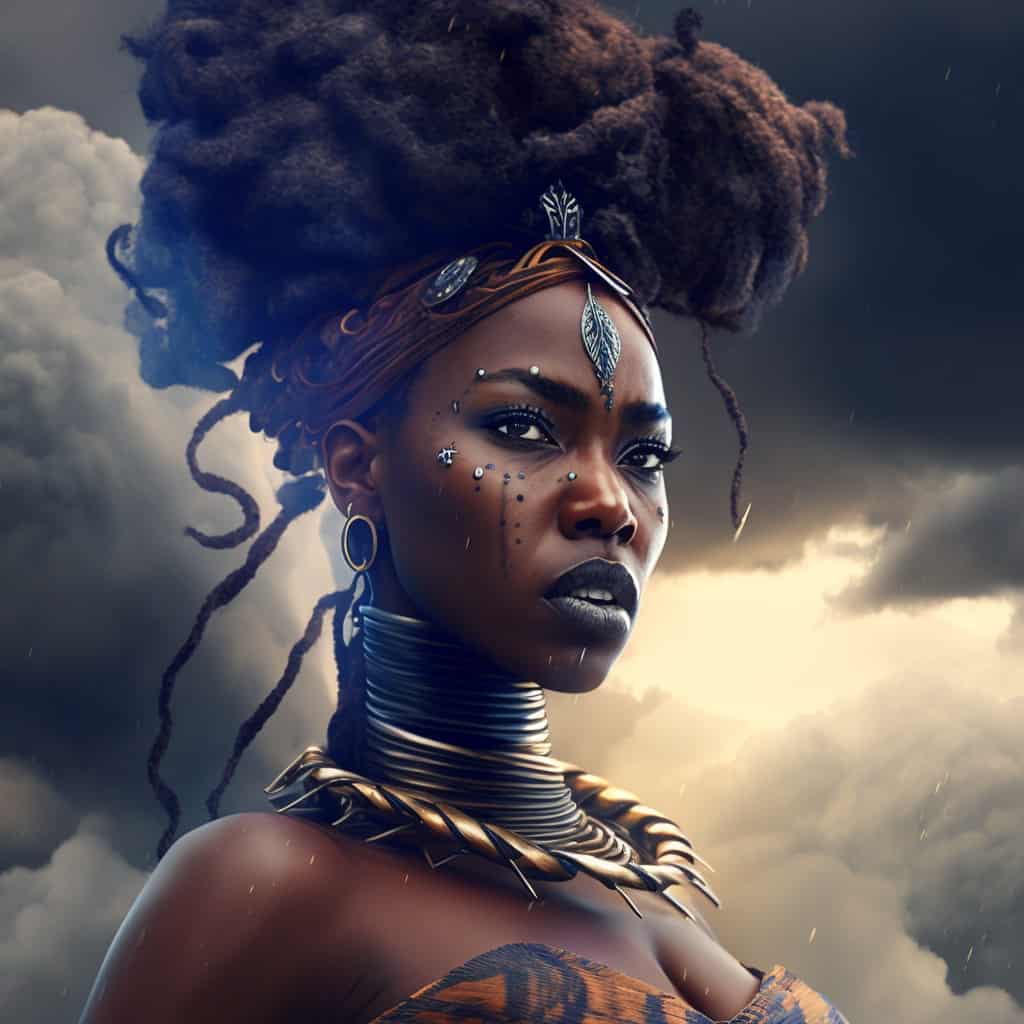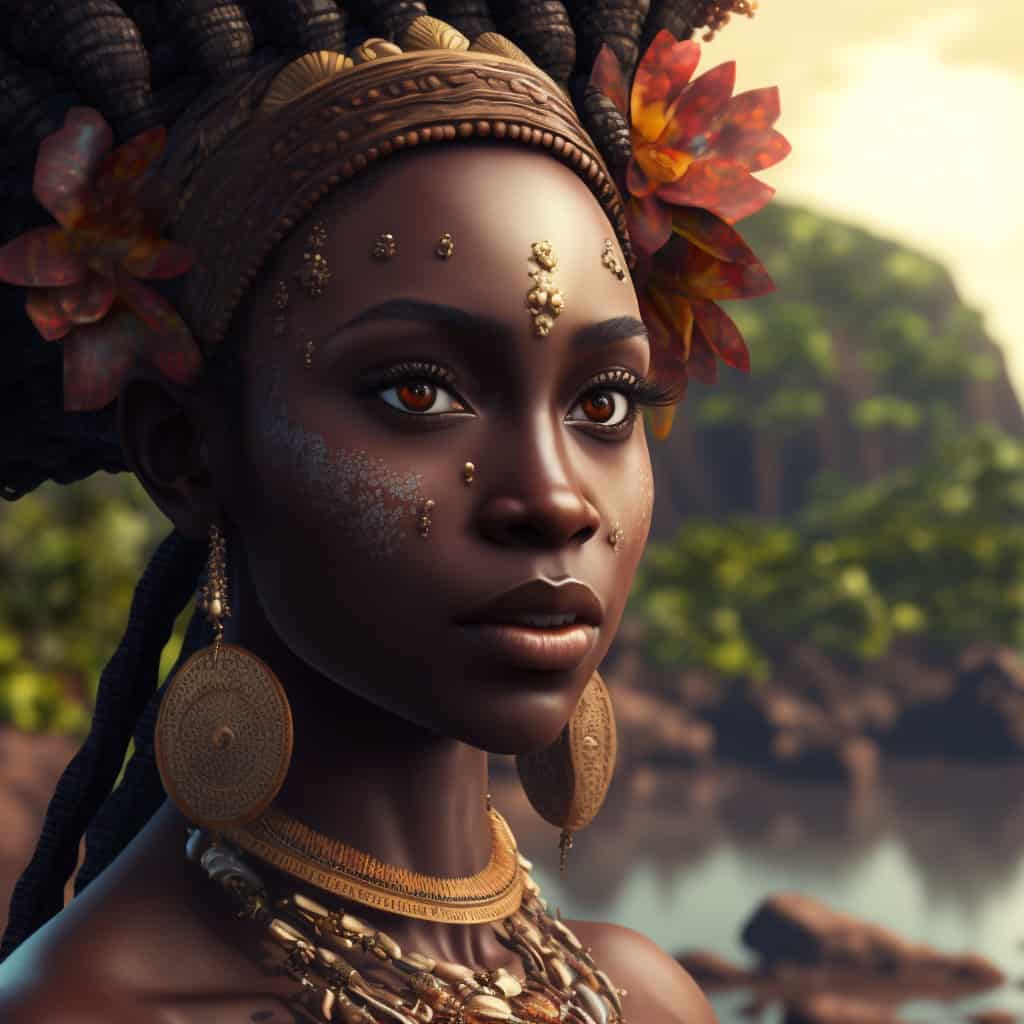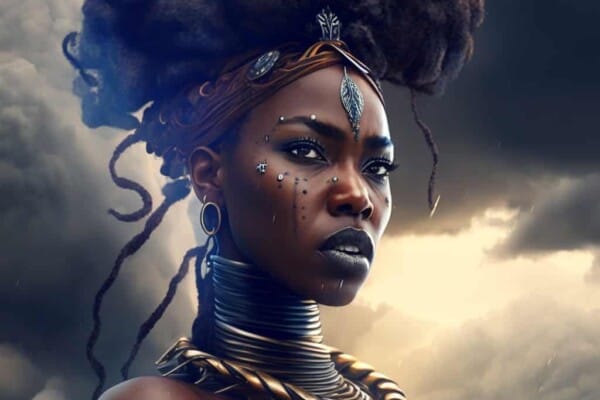Africa is easily one of the most diverse and beautiful places on our planet, but it’s not exactly as popular as other tourist destinations around the world.
Whenever you think of “Africa”, you most likely think of lions, elephants, and the endless stretches of jungles, filled to the brim with venomous creatures that can’t be found anywhere else on this planet.
But while Africa does have an abundance of those elements, it also has a ton of beautifully diverse people and cultures that have lived amongst each other for thousands of years now.
As such, the more you look at it, the more interesting these African cultures get, as their religious beliefs are very different from ours. While ours are more so based around a unified belief in a supreme deity, theirs are a lot more closely related to the human life and their daily treads.
There are thousands upon thousands of cultures to explore here, to the point where you could actually spend your whole life researching everything that Africa has in store for you and you’d still fail to capture it in its entirety.
So, for today’s article we decided to bring you a quick rundown of 15 African Gods and Goddesses that are going to show you just how interesting this part of the world can really be.
But before we do that how about we give you a little introduction to African Mythology, starting off with:
How Many African Gods Are There?
The Pantheon of Orishas, a belief system that is mostly followed by the Yoruba people, is a group of divine spirits that was created by the supreme god Olodumare.
While there is no actual official number of gods that can be found in this pantheon though, there is an interesting notion around it which states that there are 400+1 Orishas around.
This is because that number is an incomprehensible number for the Yoruba people, which in turn implies that there are an infinite number of gods in this pantheon.
Some recollections tell us that there are as many as 700, 900 or even 1,440 Orishas around. The reason as to why there is a +1 Orisha in that list is because the +1 is meant to represent the extra one you didn’t account for, or the one that you never even considered in the first place.
As such, it is meant to represent that there will always be more Orishas than you think, and while you can try to count them one by one you will always fall short before reaching the final number.
Is Yoruba the Definitive African Religion?
There is no official African religion out there, and that is because there are countless cultures and practices that are spread all across the continent.
Instead, we can refer to the Yoruba religion as its most popular religion simply due to how widespread it is.
The Yoruba religion originated from Nigeria, where it starts off small but it soon picked up traction, becoming a faith where its followers can address the gods and goddesses through their complex oral traditions which they pass down from generation to generation.
Important Themes in African Mythology
By far the most important theme that we need to mention about the Yoruba religion is the idea of Animism. This simply refers to the fact that everything, and we do mean everything, possesses some sort of spiritual essence within it.
So, you should never disrespect anything because chances are, they are controlled by the Orishas and disrespecting them is akin to disrespecting the Orisha gods.
The second most important theme that we can attribute to the Yoruba religion and culture is the idea behind reincarnation. This belief has been with the Yoruba religion for many generations now, and it refers to the idea that deceased family members will be reborn as babies after their passing.
This is why you will often times find Yoruba people named after their departed parents or grandparents in case they look alike. If they share the same likeness, they will be called something like “Babatunde” which pretty much just translates to “father returns” or Yetunde” or “mother returns”.
Now that we are accustomed to the most popular religion in Africa, let’s just talk about the 15 Gods and Goddesses that we have in store for you today, starting off with:
1. Oshun
Interestingly enough, Oshun was actually not that popular in western media until a while ago, when Beyonce mentioned her in her Lemonade music video. That is when people started to do their research about the Goddess, shining light on this Yoruba deity for the first time in the states.
But who exactly is Oshun? Well, she is the Goddess of sweet and freshwaters. The reason for this is because she is most often times depicted admiring her own beauty in the water.
She is known for healing the sick with ease, fostering prosperity and better yet, for making infertile couples fertile.
Most of the times she is actually showcased as a beautiful and coquettish young lady, and her name specifically translates to sweetness, joy, beauty and good times.
2. Ajé Shaluga
Ajé Shaluga is the god that represents money and treasures. Most of the time they are depicted as both a male and a female orisha, and their followers are always thanking them for providing them with fair wages and plenty of work opportunities to keep their families fed and happy.
If you ever need a job as a Yoruba follower, you just need to pray to Ajé Shaluga and they will grant you your wishes. While this Orisha is not one of the most popular or powerful gods around, Ajé Shaluga still has a decent following due to them being associated with happiness, stability and spiritual wealth.
If you wish to give Ajé Shaluga an offering, all you need to do is you need to grab a handful of fresh fruit, pigeons, necklaces made out of coins and shells and flowers and you need to leave them at one of their altars.
3. Bumba
Also commonly referred to as Mbombo, Bumba is actually the creator god of the Kuba people from Central Africa.
It is said that Bumba vomited the universe during its inception, creating the sun then drying up the water on Earth creating the land. Bumba didn’t stop there though as he also vomited up the sun, the night and nine animals in total.
These nine animals are the original inhabitants of Earth, and out of several combinations came humanity.
Bumba himself however is represented as a giant white-colored humanoid creature. He is most often times showcased sick, since he did vomit up the Earth back in the day.
4. Eshu
The idea of having a trickster god may sound like something made up by the Nordics, but African cultures weren’t all that far off from this concept either since they had Eshu right around the corner.
Eshu, also commonly referred to as Elegba, is the Trickster god of the Pantheon. He is pretty much just a benevolent version of Loki, as he goes around not trying to stir up problems but instead just enjoying life, more so playing the role of a messenger between the realm of spirits and mankind.
If you do actually spot him and decide not to give him an offering, he is definitely going to play tricks on you, but for the most part he just wants to have fun and be left to his own whims instead.
He does require tobacco offerings though, but once you do receive his blessing you are pretty much set for life.
5. Ogun
Regardless of which mythology you look at, chances are that there is always a master of iron right around the corner, ready to bring the gods the weapons and armor that they don during the final days.
West Africa is anything but peaceful, as war can break out at any point between tribes, which is why steel is a more useful keeper of peace than words will ever be.
And when steel becomes your only means of protection, it isn’t too uncommon to find gods based around the armory for the warriors to pray to.
This is where Ogun comes in. He is known as the Giver of Iron or the Warrior God of War for many. He is the best weapon wielder in the Orisha. He is the one that protects the Yoruba people from dangers and more specifically, the one that helps bless their weapons before they set out for war.
6. Oya
Oya is by far one of the most ferocious and protective gods that the Yoruba pray to. She is often times referred to as the Goddess of wind, thunderbolt and fire, and she is by far the most feared goddess in the pantheon.
This isn’t to say that she mistreats her followers, quite the contrary actually, but it is something to keep in mind if you choose to pray to her.
Whenever she shows up, she is usually accompanied by her husband, Shango, the God of Storms. The two walk together as their thunderstorms destroy everything in sight.
7. Shango
While modern people look at the roar of the thunder and they don’t think much of it, back in ancient times, this thunder would have been a sign that the gods’ wrath was coming down from the heavens, punishing the pagans that took the gods’ name in vain.
This wrath was represented by Shango, the bringer of thunder, as he would showcase the true power of the Gods through his own wrath and fury.
He is also the god of masculinity and strength, with many people comparing him to the Greek God Zeus or the Norse God Thor.
He actually has three different wives, Oshun, Oya and Oba, and he is often times depicted with either one of them or all three being by his side.
8. Ala
Igbo is one of the oldest African religions around, with Ala being one of their oldest and most popular goddesses.
Her name literally translates to “Earth”, which is meant to indicate that she is the creator of our planet and the one that controls its every move.
She is the goddess of fertility, morality, creativity and land, and she is often times seen next to Amadioha, her husband and the God of the Sky.
She is actually often times honored and celebrated by the Igbo people, especially so during the yearly yam festival.
You should never take her name in vain as if you dare to disrespect her, she will convince her husband to stop the rain from coming down, causing the people to suffer tremendously because of it.
9. Oshun
We all know that no matter which religion you look into, chances are that they consider rivers to be a benevolent gift from the gods.
When it comes to the Yoruba people, Oshun is the one most commonly referred to as the Goddess of Rivers, but besides this she is also often times known as the Lifeblood of the Niger River and the mother of all rivers.
She is actually Shango’s favorite wife, and she is one of the most important Orishas that you need to know about in the Yoruba pantheon.
She is also often times associated with fertility and childbirth, and it is said that she is the one that gives mothers the ability to do everything in their power to protect their children from dangers.
10. Oduda
Oduda is the goddess of prostitution that is worshipped by the North-West African people. These are the Benin, Yoruba and Dahomey tribes, and despite the fact that prostitution is considered to be a taboo by most modern people, it is often times cited as a necessity by these tribes.
Her name translates to “The Black One”, and she is most often times showcased as a serpent. The reason as to why she is the goddess of prostitution is because that is the most common practice in the Caribbean Islands.
11. Obatala
Often times referred to as the “Child of God”, Obatala is known as the kindest god in the pantheon, even though they are seen a lot of the times next to their father, the powerful Olorun.
Interestingly enough, Obatala was never actually stated as being a male or a female god, they are pretty much androgynous.
It is said that Obatala was the one that created the human bodies, and as they finished up their job, they demanded of their father to breathe life into the soulless bodies in front of them.
Their androgynous trait is actually meant to represent fairness, forgiveness and compassion all at once. They were supposed to take care of the first men and women, but because they got distracted their brother Oduduwa decided to create the world instead for them to be safe in.
12. Yemaya
Yemaya is known as the Patron Spirit of the Ocean and the Rivers, and she is the main deity that the Yoruba people pray to when they set sail.
She is said to be motherly and strong willed, while also being very good at curing infertility in women. Whenever she does lose her temper though she causes the waters to be violent, attacking and taking down even the mightiest ships because of her sorrows.
13. Aja
Aja is actually the Goddess of the Forest and all of the animals that live within it. She is the one that brings the life over to the forests, and most often times she is depicted carrying around a basket with her.
This basket is full of potions and healing herbs, since she is also often times referred to as the Goddess of Botany.
She was the one that taught the Yoruba people how to create potions and heal through herbs alone, and whenever you do go hunting you need to give her an offering so she allows you to have a safe passage through her realm.
14. Obaluaye
While death is never considered to be the final frontier in most any African culture, that doesn’t mean that you should welcome death no matter what.
Being able to prevent death from happening simply means that it was not their time to go yet, and if you can do that you need to thank Obaluaye because they were the ones that gave you the answers you needed when you searched for a way to heal them.
This is because Obaluaye is the Master of Healing and by far one of the most popular Orisha in the Yoruba mythos.
He is the one that has the cure for any illness around and if you ever happen to grow sick and weary you need to pray to Obaluaye if you wish to be healed as soon as possible.
15. Kibuka
Kibuka is actually referred to as the God of War in the Buganda Empire kingdom. It goes as far back as the 9th century, way before the first Europeans set sail on the country’s shores.
It is said that after the Bugandan people were terrorized by a series of attacks, their king decided to have a meeting with Mukasa, the Creator of all things, to ask him how he can defeat his enemies.
His answer was simple and swift, he ordered his younger brother, Kibuka, to fight on their behalf as their God of War.
Because of this Kibuka pretty much managed to destroy everyone in his path, bringing victory to the Buganda Empire kingdom.
Conclusion
African mythology has hundreds if not thousands of other gods and goddesses that we have yet to mention in this article alone. While the Yoruba mythology is by far the most popular, we also recommend checking out some of the other religions here if you have the time for it.
That is because there are so many wondrous, crazy and fantastic stories that you can hear coming from the tribes here, stories that you won’t be able to find anywhere else around the globe.
While it is nowhere near as popular as the Norse or Greek mythologies, African mythology can be just as fun to research if you have the time and passion to do so.
At the same time, we can assure you that if you do end up doing your own homework, you’ll find more than a handful of customs and traditions that you yourself may start adoring just as much as we do.

